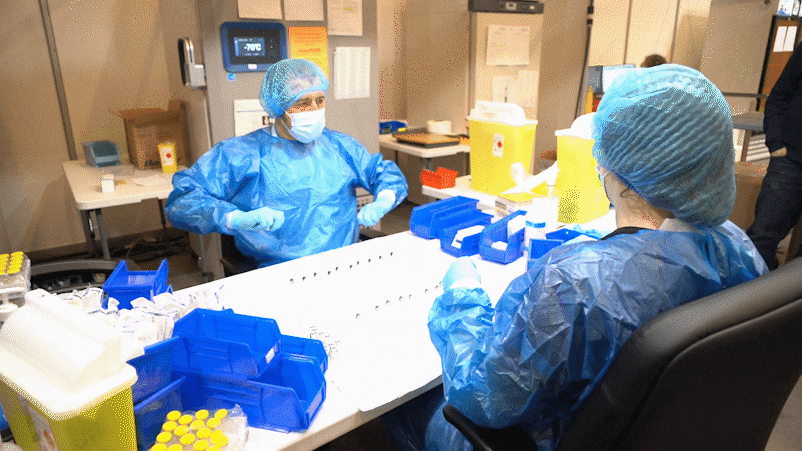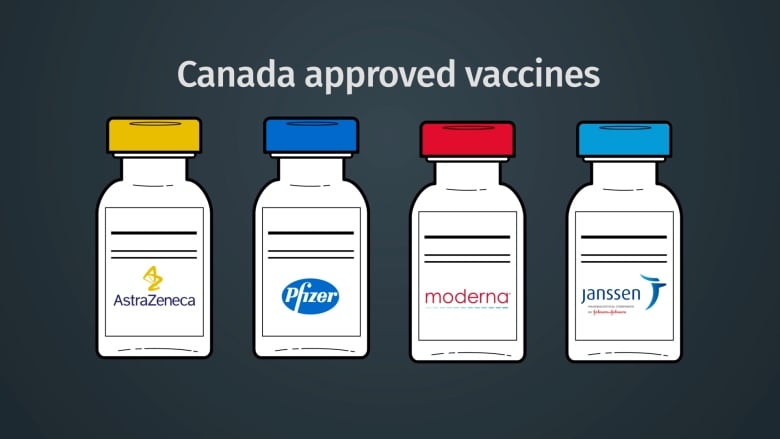How Canada's vaccines make it from the factory to your arm
Canada isn't yet producing its own vaccines, so each dose must take a logistically complicated path
You walk into the vaccination centre at the Palais des congrès, Montreal's downtown convention centre, and the operation is almost like a dance.
Soon, the vaccine's in your arm and you are on your way. From afar, it looks like a well-oiled operation, with people gliding from one table to the next.
But it's the complex organization behind the scenes — including the preparation of vaccines, dose by dose — that makes it possible.
"Every morning, the first thing I do when I get here is to check the amount of doses we have ready and make sure it corresponds to the number of appointments for the day," said Camille Bouchard-Coulombe, the associate director of the mass vaccination site at the Palais.
Bouchard-Coulombe is one of several people working behind the scenes at the Palais — and other vaccination sites across the province — making sure everyone who wants a vaccine gets one, and that no dose is wasted.
CBC Montreal tracked the complex path of an mRNA vaccine to a person's arm. It's one that could evolve as Canada eventually produces its own vaccine, Novavax, which is still pending Health Canada approval.

But until then, the country has ordered at least 381 million doses of COVID-19 vaccines, enough to vaccinate every Canadian five times.
Canada is using four vaccines at the moment: AstraZeneca-Oxford/Covishield, produced in India, South Korea and in the United States; Pfizer-BioNTech, produced in Belgium; Moderna, produced in Switzerland and Spain; and Johnson & Johnson, produced in the U.S.

Pfizer's is by far the vaccine that will end up in the arms of most Canadians because of just how much Canada has ordered and because the company has been the most consistent in deliveries.
Because we have no domestic production, vaccines must make complicated logistical journeys to arrive at vaccination sites. Those paths are managed by teams at the federal, provincial and local public health levels.
In Montreal, the main mass vaccination sites receive deliveries several times a week. At the Palais des congrès, for example, that amounts to more than 20,000 doses a week.

The staff has it down to a science — doses are unpacked, warmed up, reconstituted, ordered, filled, delivered and injected with precision. And it's repeated all day long, seven days a week.
While the rampup to Canada's mass vaccination campaign has been long, the work has now become a tried and tested process.


